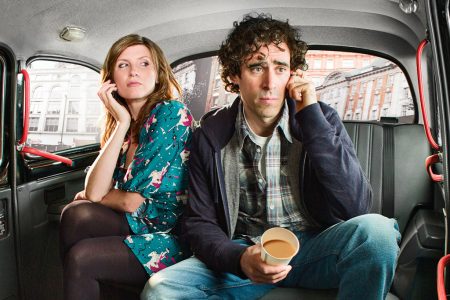This may be an easy play on words that has probably been said before, but: I wish FlashForward would flash forward. I want to know what happens but I’m not enjoying the process of finding out via the weekly television show.
FlashForward was hyped like crazy before it came onto Five (there were adverts for it in the cinema before the trailers). In one respect, it deserved some note because it is the first time that a UK terrestrial channel is showing a US next to its US transmission from the start – Heroes had a time delay before the BBC started showing the first series and only went close to air date with the second series. (I wonder how Five will cope with the breaks in schedule, where the US repeats an episode? I can’t see British audiences taking to that). But it’s strange for the UK to have something hyped before we internet-savvy genre types have heard good things about it from the US bloggers. An adjustment, then, to discovering something together (without resorting to illegal torrenting methods).
FlashForward has a great idea – the entire world blacks out for just over 2 minutes and there is a vision of what people will be doing in 6 months’ time. That’s a lovely sci-fi concept, which also has interesting themes for examination – what is fate? Is everything predetermined? Can we escape our destinies? What do we do if we know the future? So I am interested in the mystery and how things are going to pan out.
But – there had to be a but – the process of uncovering the mystery is not as interesting as it should be. In discussing it with my lovely girlfriend, the conclusion we arrived at was that the characters aren’t characters, they are just ciphers for the plot. There is no connection with any of the people involved, despite the situations in which they find themselves – they are basic sketches of limited depth who represent a small facet of the story. For example, Joseph Fiennes – an actor with some range – is relegated to a single expression of pain throughout, to represent the pain of knowing the future and wanting to change it. And that’s all. The closest we come to vaguely interesting are John Cho as an FBI agent who didn’t have a flash forward and discovered he will be dead by the 6-month time frame, and Brian O’Byrne as the former alcoholic who saw his dead soldier daughter alive in his flash forward. Apart from that – nothing. We see a relatively major character throw himself off a building to change his flash forward, and we don’t feel a thing for him; that’s a failure on the part of the creators (David Goyer and Brannon Braga). We should care more about the characters as well as the mystery to invest our time in this fiction.
Compare and contrast: at the same time as watching FlashForward, we were watching the first few episodes of True Blood and already we know the characters and care about them. Is it just because Alan Ball is a better writer than those on FlashForward? Both are based on books (but deviate from them); both have a non-mainstream concept as the driving story engine (sci-fi concept and vampires); both have a large-ish cast. True Blood is engaging; FlashForward isn’t.
Compare and contrast: the first season of Heroes (when it was good, before the last episode ruined it). A non-mainstream concept with a large cast of characters and a central mystery, but they made it work, despite how it ended, and Heroes handled the worldwide aspect better (although still not brilliantly; a fault with US productions, unfortunately).
I still want to stick around for the mystery in FlashForward – I think it’s interesting and has great potential – except the creators aren’t making it a lot of fun at the moment. I wonder if I’ll bother coming back after the ‘extended’ break …




